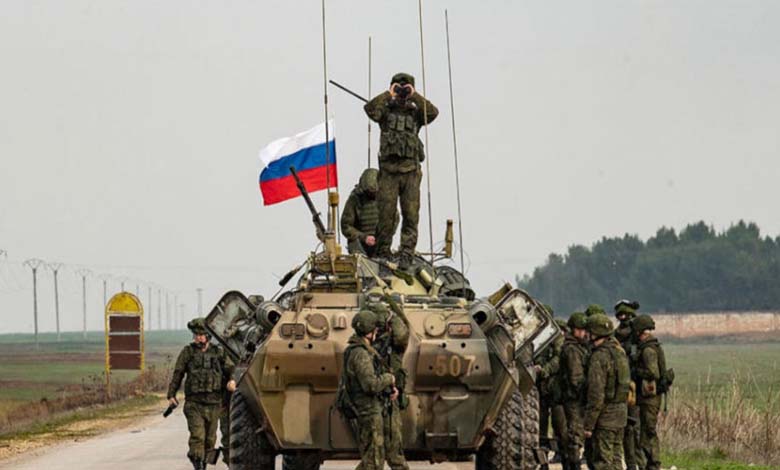Houthis Accused of Recruiting Mercenaries to Fight with Russia
A British newspaper claims that Russia is coercing Yemenis to fight in its ranks against the Ukrainian army, luring them with promises of high-paying jobs and Russian citizenship.

British media have unveiled Russian efforts, backed by the Houthis, to recruit fighters from Yemen to send them to participate in the war in Ukraine. This cooperation between Moscow and the Iran-backed group raises significant international concerns.
-
The UN Exposes the “Opportunistic Alliance”: Collaboration between Houthis and Al-Qaeda in Yemen
-
Houthis Close Religious Centers That Disagree with Their Doctrine in Three Governorates
While there has been no official confirmation of Yemeni fighters on the battlefield from either Kyiv or Moscow, the Financial Times reported on Sunday, citing informed sources, that “the Russian army has managed to turn hundreds of Yemeni men into soldiers through a shadowy smuggling operation.”
The report revealed that the Russian side deceived some recruits, offering them promises of high-paying jobs and the chance to obtain Russian citizenship. However, upon their arrival in Russia, they were forced to fight against Ukrainian forces.
-
Houthis and Humanitarian Organization Employees: Information in Exchange for Freedom
-
Following in Daesh’s Footsteps… The Houthis Spoil Yemeni Celebrations
The British newspaper explained that a prominent Houthi leader is conducting the recruitment operation through a company he founded, which secured a significant contract to advance this plan. Recruitment reportedly began as early as last July.
An American diplomat emphasized that this collaboration signifies deepening ties between the Kremlin and the Houthis. The report also noted that Russian representatives had visited Yemen for talks.
-
The Houthis’ Catastrophe Enters Its Second Decade: A Fireball Burning Yemen
-
Sinwar and the Houthis: An Alliance in a “Battle of Attrition and Existence”
In recent years, relations between the Iran-backed Yemeni group and Russia have strengthened. Last October, The Wall Street Journal reported that Russian arms dealer Viktor Bout attempted to broker the sale of small arms to the Houthis, an assertion the Kremlin denied, calling it an attempt to pressure Moscow.
Sources suggest one reason Moscow might arm the Houthis is the potential for Western nations to allow Ukraine to use Western weapons to strike targets inside Russia.
-
The Houthis have established over 400 prisons since their invasion of Sanaa
-
In a surprising decision, the Houthis threaten to target Saudi Arabia
A senior U.S. official previously remarked that discussions between Russia and the Houthis appear tied to Washington’s stance on Ukraine and its willingness—or lack thereof—to meet Kyiv’s requests to lift restrictions on using long-range weapons provided by the U.S. to strike deep into Russian territory.
Western and regional sources reported that Iran mediated secret talks between Russia and the Houthis to transfer “Yakhont” anti-ship missiles to the armed group for targeting maritime routes. This move angered Western powers, particularly the United States.
-
The Houthis and Somali al- Shabaab: “The Devil’s Alliance” Reaches the Horn of Africa
-
Houthis and Muslim Brotherhood fail Muscat negotiations… Latest developments
Since last November, the Houthis have used drones and missiles, some of which are Russian-made and modified, to target ships on critical shipping routes in the Red Sea. These attacks were carried out in support of Palestinians in Gaza’s conflict with Israel and in support of Lebanon’s Hezbollah in its fight against Israel.
Amid significant losses sustained by the Russian army in the Ukraine war, allies like North Korea have provided weapons and soldiers, altering the course of the conflict, especially in the Kursk region, where Moscow reportedly regained some territory in a counteroffensive.
-
Source reveals rifts within Houthis due to deteriorating security and economic conditions… Details
-
US “Punishes” Houthis: Drones and Control Station Destroyed
Yemen remains a hotspot for international and regional conflict, with the Houthis, supported by Iran, controlling large portions of the country. Iran, a key ally of Russia, faces off against Western powers backing Yemen’s legitimate government.












